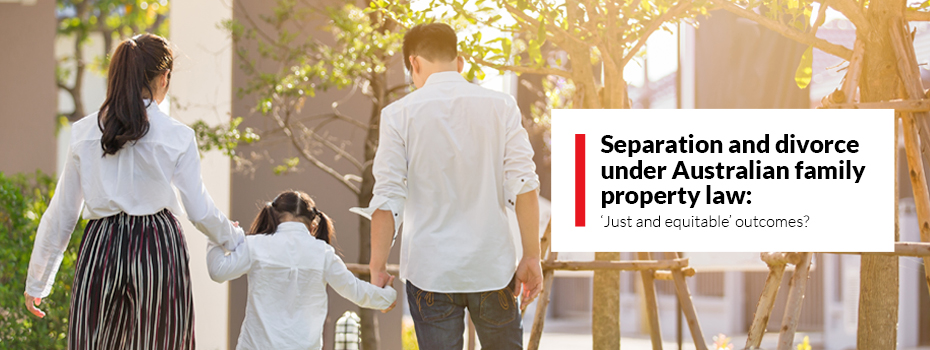Australian family property law: ‘Just and equitable’ outcomes?

As the COVID-19 healthcare crisis continues to impact family relationships already brimming with high levels of financial stress, the number of couples applying for divorce in Australia is tipped to rise over the next 12 months.
Many family law practitioners would agree that a redraft of the Family Law Act 1975, as recommended by the Australian Law Reform Commission (ALRC) report, is long overdue.
Under the current regime, Family Court of Australia (FCA) judges have considerable power over the reallocation of property interests of spouses and of separating de facto partners applying to the courts.
The existing framework for Australian family property law is a separate property regime, under which no automatic co-ownership arises from being married or in a de facto relationship.
How can more just and equitable property settlement outcomes be achieved for separating married and de facto couples?
Inside the Australian Journal of Family Law article, Australian family property law: ‘Just and equitable’ outcomes?, Associate Dean of Law Belinda Fehlberg and Associate Professor Lisa Sarmas of the Melbourne Law School at the University of Melbourne discuss the broad discretion of the FCA and propose several opportunities for legislative reform
The need to provide for the material and economic security of the separating parties and their dependent children are key factors to be considered when making property orders.
Yet empirical research consistently finds that women, particularly mothers with dependent children, experience significant economic disadvantage post-separation.
The authors propose an approach that prioritises children’s housing needs, followed by the material and economic security of parties, followed by compensating for losses and lastly, equal division of any surplus in the absence of exceptional circumstances.
In the end, the key issue surrounds achieving greater consensus on what family property law is for. In this regard, the ongoing — and apparently increasing — challenge is to achieve greater understanding and recognition of the economic consequences of separation and divorce for women and children.
 LexisNexis
LexisNexis
